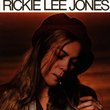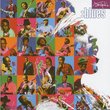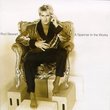| All Artists: Randy Newman Title: Little Criminals Members Wishing: 1 Total Copies: 1 Label: Reprise / Wea Release Date: 10/25/1990 Genres: Folk, Pop, Rock, Classic Rock Styles: Singer-Songwriters, Soft Rock, Album-Oriented Rock (AOR) Number of Discs: 1 SwapaCD Credits: 1 UPCs: 075992732123, 075992732116, 075992732147 |
Search - Randy Newman :: Little Criminals
 | Randy Newman Little Criminals Genres: Folk, Pop, Rock, Classic Rock
Little Criminals proved to be Randy Newman's commercial breakthrough, thanks in large part to an unlikely top 10 novelty hit. "Short People" may be responsible for positing Newman in the public consciousness as a kind of h... more » ![header=[] body=[This CD is available to be requested as disc only.]](/images/attributes/disc.png?v=a4e11020) ![header=[] body=[This CD is unavailable to be requested with the disc and back insert at this time.]](/images/attributes/greyed_disc_back.png?v=a4e11020) ![header=[] body=[This CD is unavailable to be requested with the disc and front insert at this time.]](/images/attributes/greyed_disc_front.png?v=a4e11020) ![header=[] body=[This CD is unavailable to be requested with the disc, front and back inserts at this time.]](/images/attributes/greyed_disc_front_back.png?v=a4e11020) |
Larger Image |
CD DetailsSynopsis
Amazon.com Little Criminals proved to be Randy Newman's commercial breakthrough, thanks in large part to an unlikely top 10 novelty hit. "Short People" may be responsible for positing Newman in the public consciousness as a kind of highbrow Ray Stevens-type wag. On the bright side, it sneaked its B-side--the unremittingly grim album closer, "Old Man on the Farm"--onto thousands of jukeboxes. One can imagine barflies the world over punching in the wrong number and being confronted by a solo pianist morosely mumbling, "Waitin' for some rain to fall / Waitin' for some mail to come / Waitin' for the dawn again / Old man on the farm." In 1977 that may have been more subversive than "Anarchy in the U.K." While Little Criminals isn't as focused as its studio predecessors and is marred by one or two throwaways, it's studded with memorable songs, including "Baltimore" (one of Newman's best rock arrangements), the desolate "Texas Girl at the Funeral of Her Father," and "In Germany Before the War," a chiller inspired by M, Fritz Lang's 1931 melodrama about a child-murderer. --Steven Stolder Similarly Requested CDs
|
CD ReviewsThe song that Newman hates... ewomack | MN USA | 09/21/2004 (4 out of 5 stars) "David Bowie once said about his well-known "Space Oddity" song that "I've written over two hundred songs, and that's the only one they remember." Randy Newman has probably found himself in a similar situation with "Short People". The song ubiquitously filled the airwaves in 1977 and 1978. It was truly everywhere. Variety shows featured it (a Goldie Hawn special around that time had Hawn singing "Tall people" in response to the the Harlem Globetrotter's "Short People"; Goldie of course ended up in the basketball hoop at the end), people sang it on the streets, sportscasters talked about, talk shows made jokes about it, and radio stations played it ad nauseum. SCTV dressed up Dave Thomas as Newman and blew him up ("he blowed up reel gud") while singing "Short People". Is that another way of being burned in effigy? Sadly, the satirical nature of the song fell into the abyss behind the novelty acts and what then passed as hip satire. The song's ridiculously catchy melody didn't help. It sticks like a radio jingle, banging around in one's head eternally. Surprisingly the song didn't reach #1. It stalled at #2. By that time the public had probably had enough. But don't blame the song. The mainstream simply absorbed the addictive and catchy song and packaged it in its own image (i.e., one that didn't provoke thought or controversy; it became "fun" and innocuous). Thus was one of the greatest mainstream pop satires lost on the population. Newman has recently said that he now hates the song. He doesn't want to be remembered for it. He's sick of it and wishes that it would go away. That probably won't happen. Generations from now a potential pop song compilation will be released. Its cover reads, in the fashion of the time to be, "Hits from the 1970s!" Somewhere in the song list will be "Short People by Randy Newman". "Louisiana 1927" won't be there. Neither will "Rednecks" or "Sail Away". That is, unless our global culture takes a sane turn for the better. Where there is life, there is hope. The most optimistic way to think of "Short People" (it's actually a great song for what it is) is that it has the power to introduce listeners to Randy Newman. More than one Newman fan likely got their start by hearing it on the radio. Perhaps they then went and picked up "Little Criminals" and heard gems like "Sigmund Freud's Impersonation of Albert Einstein in America", "In Germany Before the War", or "Texas Girl At the Funeral of Her Father"? Their curiosity peaked, they went and bought "Good Old Boys" or "Sail Away". Who wouldn't be hooked then? And all that thanks to what is commonly subsumed as a "novelty hit". That said, "Little Criminals" in no way showcases Newman at his utmost best. Considering its predecessor, "Good Old Boys", it's slightly, very slightly, disappointing. Of course it contains absolutely amazing songs such as those listed above along with "Baltimore" (another song Newman supposedly hates), "Kathleen" and "Old Man on the Farm". Alongside these are some good but not great efforts such as "You Can't Fool the Fat Man", "Little Criminals", and "Rider in the Rain". These songs don't contain Newman's usual umph! and conviction. They're still great, but they're not absolutely top-notch Newman. One song was exhumed from the vaults. "I'll Be Home" actually debuted on "Randy Newman Live" six years earlier. Here it receives a full arrangement in contrast to the solo piano voice treatment. A first on this album is pronounced distorted electric guitar, which fit the times. Though generally well produced, it's still a product of its generation. More evidence of this are the pieces of the Eagles strewn throughout the album. Don Henley, Glen Frey, and Joe Walsh all contributed parts. Other stars at the time wanted Newman to succeed. He certainly did on this album, at least commercially. Whether Newman likes it or not, "Little Criminals" probably stands as the most common introduction to Newman's music for the average listener. And that's not a bad thing." Funny, Tragic, Elegant, Lurching, Sweet and Painful..... M. Hull | 10/09/2003 (4 out of 5 stars) "I love this album. It's one my dad bought back in 77 and I think I must've worn out the turntable's stylus listening to it with headphones. It's haunting, beautiful and thought provoking, and also playful and irreverent. His musical sensibility is a compelling blend of old-world and new, his voice a weirdly wonderful torture you can't quite get enough of, and his lyrics are chock full of poignant observations and strange perspectives. He takes you places you've simply never imagined going and you'll be glad for it. If you enjoy Tom Waits, you'll dig Randy, and how. While their styles are totally different, they share a unique ability to capture obscure moments in the human experience and craft hauntingly gorgeous songscapes to communicate them. Buy some early Randy...you'll be glad ya did." The bane of Randy's existence... Marc Kloszewski | Indiana, PA United States | 02/25/2000 (4 out of 5 stars) "...is on this album. The incredible sledgehammer irony of "Short People" actually angered a lot of people (you know it, "Short People got...no reason to live..."). But it was business as usual for Randy, who specializes in singing about things normally shied away from in popular music (old age, cruelty, racism, etc.). Here I suppose, is his sales breakthrough, anyway. The first side can do no wrong. It has the aforementioned screed, the duo of petty grifter tales ("You Can't Fool the Fat Man" and "Little Criminals", both delivered in that bemused, jaunty way he looks upon what fools people can be), the spare, sad and gorgeous "Texas Girl..." and "Jolly Coppers on Parade", a perfect vignette seen through the eyes of an admiring youngster--we sense he may feel differently toward the men in blue somewhere down the road (at least, that's my impression of it). Second side is definitely more "L.A." with the appearance of the Eagles behind him. "Baltimore" actually sounds like a traditional ballad, and it suffers. You don't expect to hear such unadulterated sentiment from Randy--you keep looking for subtext. "I'll Be Home", written long before he recorded it here, is similar--but it's a better tune and the unadorned arrangement suits it. The disc finishes with "Kathleen", a bluesy ode to the sexual appeal of that particular Irish girl, and "Old Man on the Farm" (just Randy and piano again, you can imagine)--I like the Amazon review which mused on the mistake of choosing that instead of "SP". Very good stuff overall."
|

 Track Listings (12) - Disc #1
Track Listings (12) - Disc #1


![Sly & the Family Stone - Greatest Hits [Epic]](https://nationalbookswap.com/cd//m/63/8263/18263.jpg)





